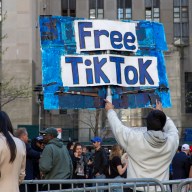Down in the dumps? Got the blues? Early February can be a depressing time of year.
The days are short and dark, the weather is cold and dreary, holidays are scarce and debt is piling up.
It’s not just you. January and February can be a real downer for many people, says Dr. Hymie Anisman, Canadian Research Chair in neuroscience at Carleton University in Ottawa.
What makes this time of year worse is the contrast between the happiness and energy we felt in December, versus the doldrums of mid-winter.
Doctors call this the “contrast effect.” For many, December was fun — there were holidays, parties, people all around, activities, family and a festive mood. February is boring.
“We wouldn’t feel nearly as bad without the ‘contrast effect,’” says Anisman, whose work in stress-related disorders is funded by the Canadian Institutes for Health Research.
“You look out your window and it’s gloomy and yucky. There is not a whole lot to look forward to.”
Even to go for a walk is a bit of a drag — putting on your coat, gloves, hat, scarf and boots.
Winter blues can make you feel irritable and sad, lethargic and tired.
You might experience sleep disturbance, difficulty concentrating, and loss of appetite. Or you may indulge in overeating. Your symptoms are mild.
“These are biological changes that in severe forms can manifest as seasonal affective disorder,” says Anisman.
His advice?
Two things: Get active and get together with other people. If you can do both at once, so much the better.
“Yeah, you can veg in front of the TV, but how many re-runs of CSI can you watch?
“Get off your butt. Plan a schedule. Force yourself to go to the gym.”
The best activities for lightening your mood are those that involve other people. He recommends team activities such as indoor soccer and tennis. Volleyball is a great winter sport because you play as a team of six.
“There’s yelling and jumping around. It brings out happiness in people,” he says.
If you don’t like sports, get together with others to share a game.
“Social support is a really super buffer against day-to-day pressures,” says Dr. Anisman. There is some scientific evidence that “playing” leads to better health.
Play activities are those in which no one feels like a loser — the joy is in the activity itself.
It’s fun and it helps us lose track of time.
















